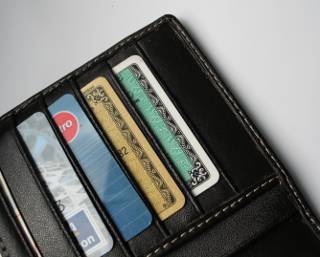A Pepper Grinder Post
Fair is Fair
 My wife and I have often puzzled over the popularity of the phrase, “What would Jesus do?” If you are certain you know what Jesus would do in a given situation, you are doing much better than me, or than his own disciples. To me, Jesus sounds less predictable than anyone I’ve ever met. People would come to him, with good or malicious intent, expecting to get one kind of answer, and would go away amazed.
My wife and I have often puzzled over the popularity of the phrase, “What would Jesus do?” If you are certain you know what Jesus would do in a given situation, you are doing much better than me, or than his own disciples. To me, Jesus sounds less predictable than anyone I’ve ever met. People would come to him, with good or malicious intent, expecting to get one kind of answer, and would go away amazed.
By the same token, people who approached Jesus, hoping for or expecting a certain response, were often disappointed. I want to look today at an example of someone who came to Jesus with a reasonable-sounding request. Here’s what happened: (Luke 12:13-15, my translation)
Someone from the crowd said to him, “Teacher, tell my brother to divide the inheritance with me.” Jesus answered, “Who made me your judge or mediator?” He said to them, “Be on your guard against all greed, because a person isn’t defined by the abundance of things he has.”
On the face of it, there doesn’t seem to be anything wrong with this man’s request. Of course the inheritance should be divided evenly between brothers. If the brother doesn’t want to split things equitably, he is being a greedy wretch. This is why all parents should have a good will, even if they think they have years left to live.
 The trouble is, when we think this way, we’re reading modern customs back into Bible times. I spent about eight months working with Amish carpenters. None of the young men on my crew were first sons. That’s because the first son would inherit the farm and farm it. Later sons either had to find some other way to get a farm, or had to find another livelihood, like my co-workers. If Amish families (many of which are quite large by modern standards) split the farm between their sons, it wouldn’t be long before the farms people inherited would be too small to support them.
The trouble is, when we think this way, we’re reading modern customs back into Bible times. I spent about eight months working with Amish carpenters. None of the young men on my crew were first sons. That’s because the first son would inherit the farm and farm it. Later sons either had to find some other way to get a farm, or had to find another livelihood, like my co-workers. If Amish families (many of which are quite large by modern standards) split the farm between their sons, it wouldn’t be long before the farms people inherited would be too small to support them.
The concern in Bible times was similar. Ancestral property was very important. People didn’t want it to leave the clan, but they also didn’t want it to get chopped into such small bits that people could not live off it. So, while younger sons would still inherit something, the oldest son got the land, which was usually the lion’s share of the inheritance. The Prodigal Son’s father seems to have had the wherewithal to give his one son a lot of money, while the father and the older brother stayed on the farm. However, most people would not have had that kind of cash.
The brother in Luke 12 is going to someone he sees as a kind of nontraditional rabbi in hopes that this rabbi will grant him what he believes to be his fair share, instead of sticking to what would have been normal in that society. This doesn’t sound too crazy. Jesus often did side with the poor, and against the rich and privileged.
The downfall of the plan was that Jesus consistently responded not to what someone said, but to what was in his or her heart. His response to this man was, “Who made me your judge or mediator?” As the U.S. Supreme Court often does, he declined to accept the case.
But he didn’t stop there. His first response was to the man who had made the request, but he then turned to the crowd and used this request as a springboard for a teaching about greed. If I were the man who had asked the initial question, I would have been ready to sink down into the earth at this point.
Jesus told them to be on their guard against all kinds of greed. The way this is phrased in the Greek makes it clear that this watchfulness is something we need to have continually. But what exactly is it we’re supposed to be watching out for? The trouble with a word like greed is that you can define it different ways. If you are the type of person who lets himself off the hook, it is easy to say, “I’m not greedy. Now, Girard next door, he is greedy!” On the other hand, if you are the self-blaming type, it is just as easy to say, “Oh man. I knew I shouldn’t have ordered that new top. I am such a greedy wretch!”
Here are some things which struck me about greed as I looked at other New Testament passages using the same Greek word.
- It is a desire that cannot be satisfied. Sometimes when I hear people talk about some new thing they want to buy, I get the feeling they think that if they can just get that one thing, they will be satisfied. I see myself falling into this type of thinking, sometimes about a thing I want to buy, other times about something like a new job or hobby. What I have seen over and over in my life is that, after a short honeymoon, I find myself wanting just one more something. Greed is something which will never say, “Now I have enough.”
- Greed places the thing you want in place of God, which is why Colossians 3:5 likens greed to idolatry.
- Greed can involve holding onto things you have as well as trying to get new things.
Here are some ideas I had about questions you can ask yourself to try to see if greed is motivating a decision you are making.
- Why do I want the thing I am trying to get or hold onto? This is a tricky one. I do not think it is always wrong to do something like buy yourself something small (if you can afford it—see #2) when you are discouraged. I am also not arguing that we should have a purely utilitarian approach to all purchases. We certainly see times in the Bible when people celebrated special occasions by killing the fattened calf and having a feast.
However, I think for many of us, it is all too easy to use material things to provide the comfort we should be seeking from God. In spite of the stereotypes about women shopping for emotional reasons, I think we men are prone to this too. I have caught myself wandering through a hardware store, not because there is something I need, but because I am looking for some new toy which will momentarily lift my spirits. If something catches my eye, I am amazed by the skill with which my mind comes up with reasons why I need that thing or should buy it. One of the most helpful things for me is to force myself to wait a day or so before deciding on a purchase, or to discuss it with a clear-thinking person who will not just tell me what I want to hear.
If you are buying something to try to fill an emotional need, that thing will not fill the need, and you will soon find yourself wanting more.  Can I afford this? I think that more and more, at least here in the U.S., decisions to purchase things have become divorced from whether or not we have the money to pay for them. This is not surprising, when we live in a society where government leads the way in demonstrating that what you spend should never be tied to how much money you have or take in. We also have the advice of countless retailers and companies offering credit, telling us that the money we have on hand does not have to limit our purchasing power.
Can I afford this? I think that more and more, at least here in the U.S., decisions to purchase things have become divorced from whether or not we have the money to pay for them. This is not surprising, when we live in a society where government leads the way in demonstrating that what you spend should never be tied to how much money you have or take in. We also have the advice of countless retailers and companies offering credit, telling us that the money we have on hand does not have to limit our purchasing power.
The problem I have with this approach, as a Christian (aside from the whole question of debt, which I also want to deal with sometime), is that it takes away God’s control of our finances. It is as if we are driving in one of those cars like the one I took Driver’s Ed classes in, where the instructor had a brake pedal on the passenger’s side, so he could stop the car in an emergency. If we make it a matter of policy not to buy things if we don’t have the money for them, it gives God that brake pedal. If we just put it on the Visa, we have told God that we don’t need his help in deciding whether to make purchases. Part of the reason the New Testament talks about the difficulties of being rich while truly following Christ is that the more money you have, the less there is to stop you from indulging in greed and making your money and possessions your god.- What is my main focus? If you are feeling grateful to God for a thing you have or are buying, I think that’s a sign that your priorities are in the right place. If you are primarily thinking about the THING and how wonderful it is, your idolatry alarm should be going off.
 Jesus didn’t just leave us with moral teaching about greed. He gave us a reason for not being greedy when he said, “a person isn’t defined by the abundance of things he has.” Here is where the teachings of Christ differ vastly from so much of what we see and hear in America’s materialistic culture. The most blatant example of this I have seen is the bumper sticker which reads, “The one who dies with the most toys wins.” However, I have met people who live as though this were true, even though they would never put that bumper sticker on their Lexus.
Jesus didn’t just leave us with moral teaching about greed. He gave us a reason for not being greedy when he said, “a person isn’t defined by the abundance of things he has.” Here is where the teachings of Christ differ vastly from so much of what we see and hear in America’s materialistic culture. The most blatant example of this I have seen is the bumper sticker which reads, “The one who dies with the most toys wins.” However, I have met people who live as though this were true, even though they would never put that bumper sticker on their Lexus.
It is a sad thing to see a person trying to fill an emotional hole in his or her life with possessions. If you look in that person’s eyes while he tells you about his new car or she tells you about her new smartphone, you will still see pain. The new thing may have momentarily distracted him or her from the hurt, but it didn’t make it go away. It won’t be long before the person will be on the lookout for a new band-aid.
Jesus isn’t telling us not to be greedy because he wants us to be good. He is telling us not to be greedy because he wants us to be free. He wants us to bring our hurts, our dissatisfactions, and our misery to him. He is able to heal us. All possessions can do is make us forget our unhappiness for a moment or two.
- Pepper
Posted 2013-12-29
*Photo Credits: credit cards by sanja gjenero
